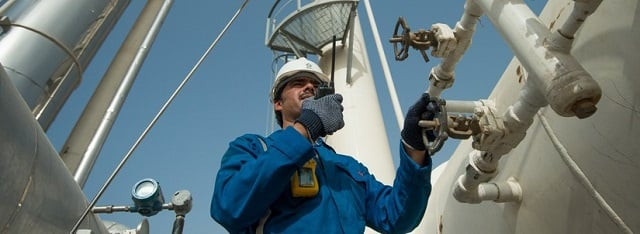Mari Petroleum’s profit soars 73.5% in Oct-Dec quarter
Net sales increase 50% to Rs8.68 billion

Mari Petroleum Limited's soars in Oct-Dec quarter PHOTO COURTESY: mpcl.com
In the same three months of previous year, the company had registered a profit of Rs1.85 billion. Earnings per share came in at Rs29.05 in the Oct-Dec 2017 quarter compared to Rs16.75 in the corresponding period of previous year.
Board of directors of the company recommended first interim cash dividend of Rs3.50 per share. The entitlement will be paid to the shareholders whose names will appear in the register of members on March 14, 2018. Mari Petroleum’s share price improved 0.54%, or Rs8.40, to close at Rs1,563.59 with 5,080 shares changing hands at the PSX. The company recorded net sales of Rs8.68 billion, which was 50% higher than Rs5.79 billion. It realised other income of Rs667 million against other expenses of Rs94 million. On the flip side, exploration and prospecting expenditure surged 2.6 times to Rs1.11 billion compared to Rs423 million.
However, the company paid gas development surcharge worth Rs3.12 billion in the Oct-Dec quarter, which was almost half the Rs6.09 billion paid in the same quarter of previous year.
Moreover, it paid general sales tax amounting to Rs2.70 billion, which was 20% lower than Rs3.83 billion.
A significant reduction in surcharge and sales tax payments helped the company book higher net sales. Gross sales were, however, 3% lower at Rs23.05 billion compared to Rs23.79 billion. Topline Securities’ analyst Nabeel Khursheed said in post-result comments net earnings were “slightly below expectations due to higher expenses”.
Net sales showed a considerable growth thanks to higher Arab Light oil prices, up 25%, unwinding of entitlement factor of Mari gas field price (80% in 2HFY18 vs 67% in 2HFY17), higher gas production from Mari field, up 3% to 632 million cubic feet per day (mmcfd) and higher price benefit on incremental production in 2QFY18, he said. Production exceeding 10% from 525 mmcfd is eligible for higher pricing under the Petroleum Policy 2012.
Key risks to the company include its inability to meet the set benchmark of incremental production to get benefit of higher pricing, slowdown in demand from the fertiliser sector (80% of fertiliser production depends on gas supplied by Mari), lower-than-anticipated international oil prices and delay in settlement of the company’s dues by its customers due to circular debt, he said.
Published in The Express Tribune, February 23rd, 2018.
Like Business on Facebook, follow @TribuneBiz on Twitter to stay informed and join in the conversation.


















COMMENTS
Comments are moderated and generally will be posted if they are on-topic and not abusive.
For more information, please see our Comments FAQ